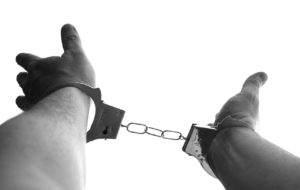New Jersey Violations of Parole Attorney
 Many people have heard of imprisoned individuals “getting out on parole.” If you are serving a prison sentence in New Jersey, parole is an important program that may allow you to return to the community before your sentence is over. You might be eligible for parole after serving one-third of your sentence or a statutory minimum. If the No Early Release Act (N.J.S.A. 2C:43-7.2) applies to your crime, you will need to serve 85 percent of your sentence before parole is a possibility.
Many people have heard of imprisoned individuals “getting out on parole.” If you are serving a prison sentence in New Jersey, parole is an important program that may allow you to return to the community before your sentence is over. You might be eligible for parole after serving one-third of your sentence or a statutory minimum. If the No Early Release Act (N.J.S.A. 2C:43-7.2) applies to your crime, you will need to serve 85 percent of your sentence before parole is a possibility.
Once out on parole, it is critical that you comply with all terms and conditions set by the Parole Board. If not, you could face allegations of a parole violation and could face serious consequences, including a revocation of your parole under NJ Rev Stat § 30:4-123.51a and a return to prison. Some people face allegations of violations when they did not do anything wrong.
No matter what your specific situation may be, it is critical that you seek assistance from a New Jersey criminal defense lawyer if you are facing a parole violation. Contact the Law Office of Matthew V. Portella, LLC in Haddon Heights to learn how we can assist you today.
Parole and Parole Conditions
Before your prison term is complete, you may have a chance to go before the Parole Board and request an early release on parole. The New Jersey State Parole Board holds more than 20,000 parole hearings per year, and the majority of inmates in our state do not serve their full sentence due to parole.
A sentence can specifically allow for release on parole, or the decision may rest on good behavior while in prison. The Parole Board considers many factors, including conduct in prison, rehabilitation attempts, the nature of the offense and past convictions, statements from victims, and more.
 Parole Conditions Can Be Strict But Worth It
Parole Conditions Can Be Strict But Worth It
If the Board grants release on parole, you will receive a parole officer assignment. Officers supervise about 15,000 parolees throughout New Jersey every year.
As soon as you get released, you must report directly to your officer, who will advise you of your parole conditions. Conditions can vary significantly depending on the facts of your case and your offense, though some conditions commonly include:
- Regularly reporting to your parole officer as scheduled
- Keeping your parole officer informed of your residence or new residence if you plan to move
- Keeping your parole officer informed of your employment
- Abiding by a curfew
- Getting permission before you travel outside the state or country temporarily
- Waiving extradition if you travel out-of-state without the proper permission
- Telling your parole officer if you receive any traffic tickets or if police arrest you for any reason
- Agreeing not to possess or own firearms or weapons
- Agreeing not to use any controlled substances
- Agreeing to random or scheduled drug testing
- Attending any mental health or substance abuse treatment if required
- Agreeing not to contact the crime victim or any other individuals cited in your conditions
- Agreeing to be subject to unannounced home visits and searches by a parole officer at any time and without the need for a search warrant
There can be many additional conditions, especially for sex offenders or those who committed crimes against children. Parole conditions can be strict, but this is the price of living and working back in your community instead of in state prison. Failing to comply with any conditions may lead your parole officer to report a violation.
Parole Violation Hearings and Possible Penalties
Your parole officer can seek a warrant for your arrest for different reasons, including a violation of parole conditions, finding contraband in your home, or probable cause to believe you may flee the state without permission or commit another crime. If police arrest you on a parole-based warrant, the law allows authorities to hold you in jail without setting bail until your scheduled parole hearing.
 You do not have the right to a case in criminal court and a criminal jury trial for a parole violation. Instead, the State Parole Board’s Revocation Hearing Unit will appoint a hearing officer to oversee your revocation hearing. Furthermore, no one has to prove your violation beyond a reasonable doubt, as required in criminal cases.
You do not have the right to a case in criminal court and a criminal jury trial for a parole violation. Instead, the State Parole Board’s Revocation Hearing Unit will appoint a hearing officer to oversee your revocation hearing. Furthermore, no one has to prove your violation beyond a reasonable doubt, as required in criminal cases.
Instead, the hearing officer will decide if there is “clear and convincing evidence” of a violation, which is a lower burden of proof. If they decide you violated your parole, they will also decide on the penalties. Penalties for a parole violation can vary and may include:
- Stricter parole conditions for the future
- Serving the remainder of your original prison sentence
- Serving the remainder of your sentence, as well as a new sentence if your violation involved a subsequent crime
Seek Help From a Parole Violation Defense Attorney
Parole violations are extremely serious matters, and you do not have the same rights and protections as you did in your initial criminal case. If police arrest you due to a parole violation or for a new crime while you are on parole, your first call should be to a skilled New Jersey defense lawyer who handles parole violations. You need the right representation at your hearing to prevent wrongful findings of violations or overly harsh consequences.
Alternative Penalties
Maybe you did not understand when you needed to notify your parole officer of certain information. Perhaps you fell behind on child support and did not realize it could result in a violation. Maybe you associated with someone you did not realize was a felon or missed a scheduled drug test.
Whatever the circumstances may be, we can fight for alternative penalties instead of a return to prison. Some alternatives sentences may include:
- Additional drug or alcohol treatment
- GPS monitoring
- Anger management classes
- Adjusted terms of your parole
We work to protect your rights on parole and to prevent you from returning to prison whenever possible. If you picked up a new criminal case, we can also defend against those charges, as well.
 Call Our Haddon Heights Parole Violations Defense Lawyer for Help
Call Our Haddon Heights Parole Violations Defense Lawyer for Help
At the Law Office of Matthew V. Portella, LLC, our New Jersey criminal defense attorney has extensive experience representing clients in criminal cases and parole revocation hearings. Having the right defense assistance is essential to ensure you can remain in the community if possible. Contact us online today or call us at (856) 310-9800 to discuss the details of your situation and learn how we can help.
